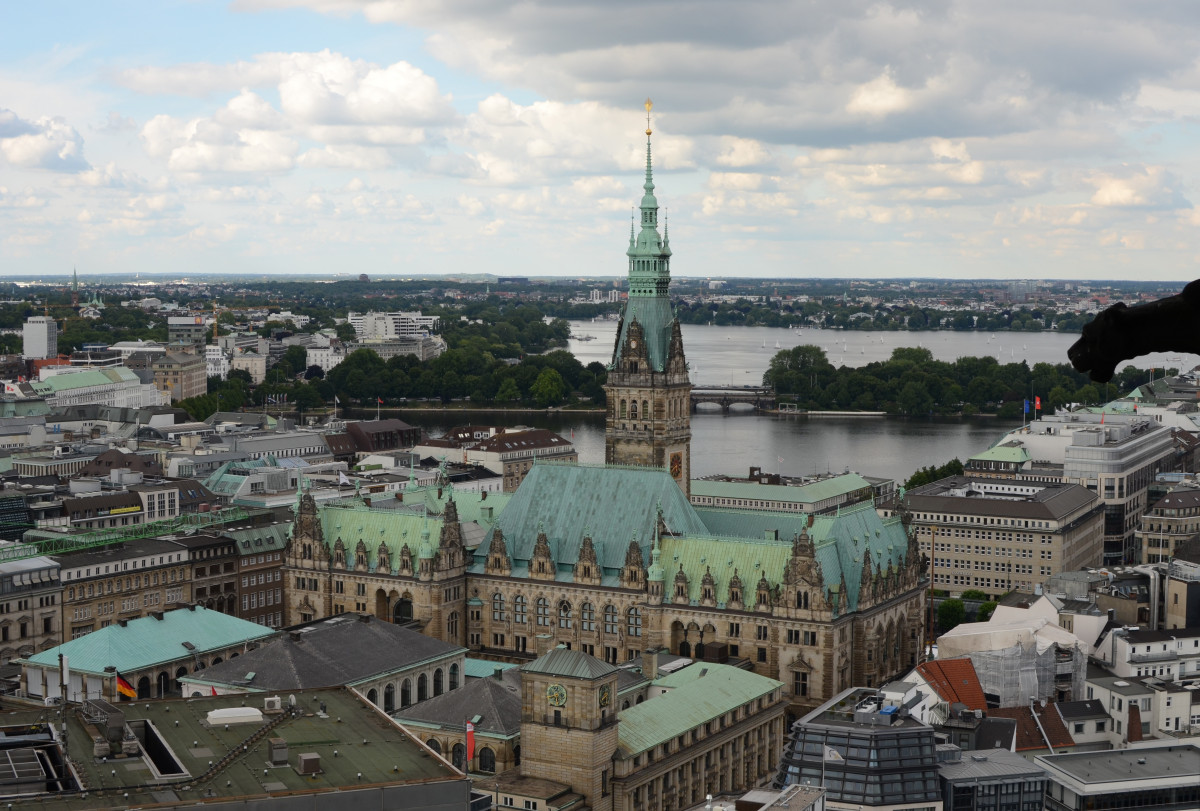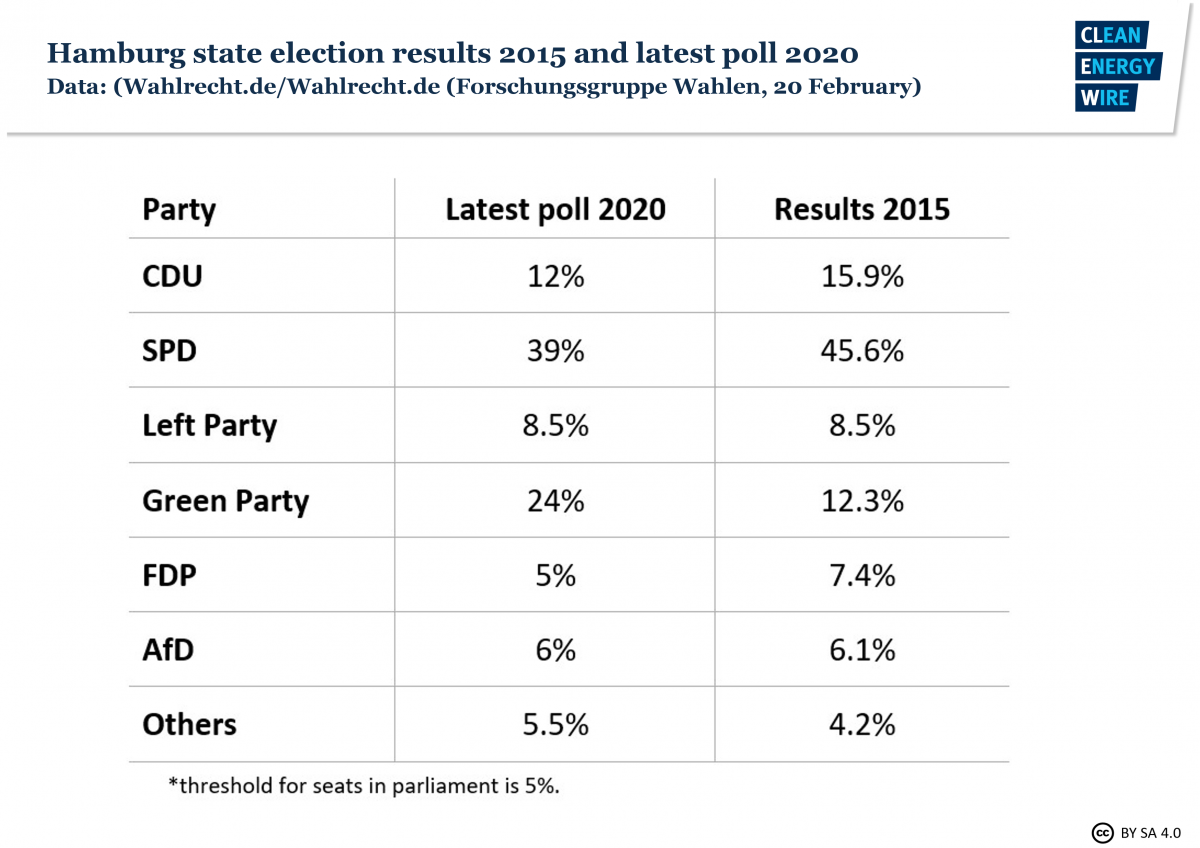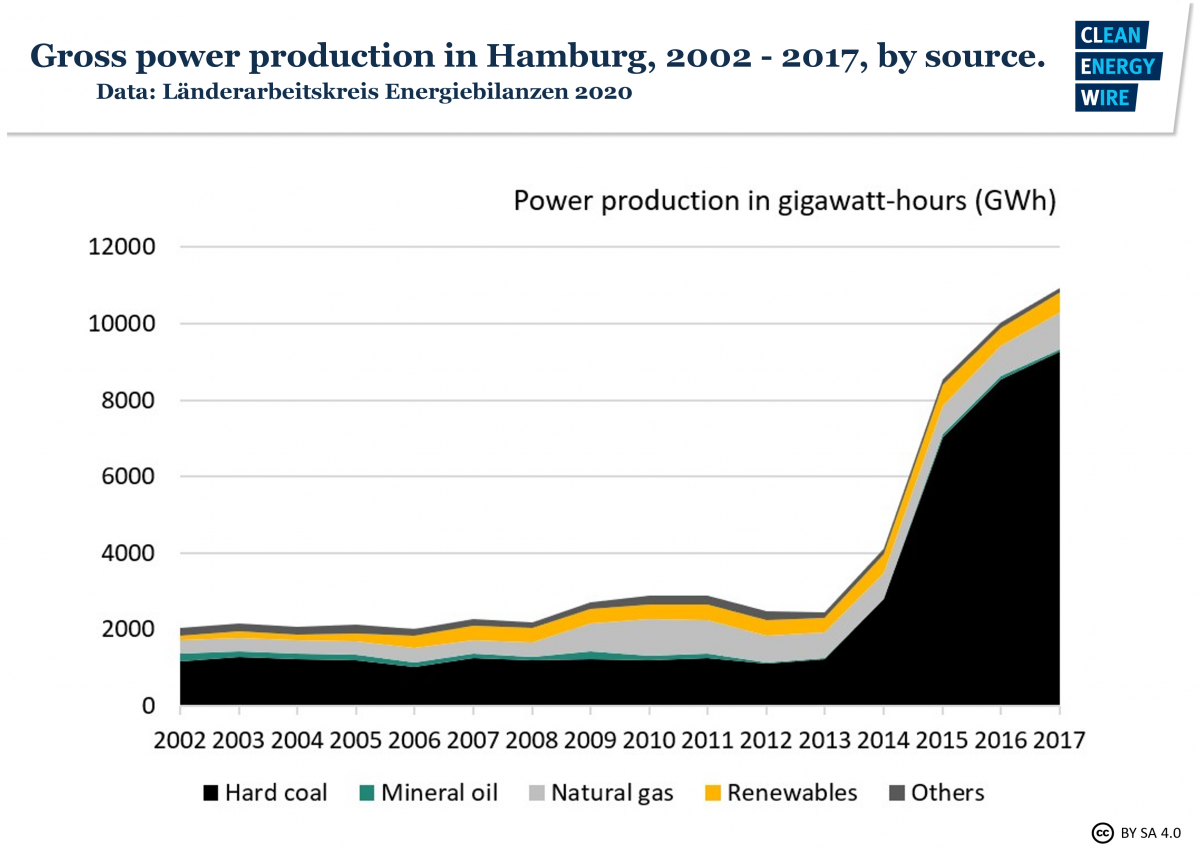Greta Thunberg visit raises profile of Hamburg 'climate election'
Swedish activist Greta Thunberg will travel to Hamburg to support calls for more climate action during a Fridays for Future protest preceding elections in the north German city, which the student movement has dubbed a "climate vote," reports Spiegel Online.
Thunberg's visit is set to further raise the profile of climate issues at the elections already shaped by concerns over a changing global climate, paired with local worries over pollution from shipping, a car-crowded inner city and a proposal to put trams back on Hamburg's streets.
Four out of five residents say climate is either “important” or “very important” in their decision on 23 February, and the Greens look set to double their 2015 vote share of 12.3 percent. The local party chapter is riding a wave of voter support which has been slowly building up nationally after heatwaves, droughts and the Fridays for Future student climate protests began gripping the country in 2018.
The Greens’ current government coalition partner, the Social Democrats (SPD) of incumbent mayor Peter Tschentscher, will likely lose some of the whopping 45.6 percent majority it secured five years ago yet should still come out on top, paving the way for relative continuity of the city’s policy.
Hamburg, which is situated on the Elbe river, is home to Germany’s biggest harbour, and climate change could become an existential question when sea levels rise. Almost two million people live in the city – often called the “gateway to the world” – and it has largely been an SPD stronghold since World War II. Hamburg is also home to one of the region’s biggest climate blemishes: the 1.6 gigawatt hard coal plant Moorburg. It can generate up to 11 billion kilowatt hours per year, enough to cover almost the entire electricity consumption of Hamburg.
Germany’s exit from hard-coal-fired power generation has prompted Swedish utility Vattenfall to speed up thinking about options for its Moorburg plant, Chief Executive Magnus Hall told newswire Reuters. “The options include a possible fuel change to gas or biomass, or selling the plant,” Hall said. Days before the election, mayor Tschentscher proposed that the plant be shut down "many years" earlier than the current end date of 2030 and replacing part of it with a large hydrogen production facility while converting its second block into a gas power plant.
In December 2019, Hamburg's city government of the SPD and the Greens agreed on a climate action law and an update to its climate plan aiming for a 55 percent reduction in CO₂ emissions by 2030 compared to 1990, and for the state to be climate neutral by 2050. This would mean reducing emissions to 9.3 million tonnes by 2030, compared to 16.4 million tonnes in 2017. The city parliament adopted both on 12 February, according to a report in dpa.
“Hamburg votes for climate“
Climate and environment policy has been one of the main issues in the election campaign, ranking fourth behind transport, living and education, according to a poll commissioned by regional public broadcaster NDR. A majority of respondents supported the introduction of car-free inner city areas and the construction of new bike lanes at the expense of space for cars.
The harbour and connected pollution is also a prominent issue. “I would wish that the future government takes a more critical view of what industry does in Hamburg, especially in the harbour,” a citizen told public radio broadcaster NDR 90.3. “Considering climate change, the shipping industry must become cleaner. The companies must assume responsibility.”
The Fridays for Future student climate movement has announced a large protest on 21 February – two days ahead of the election – titled “Hamburg votes for climate”. The organisers say they want to show “that the only state election in 2020 is a climate election and Hamburg must do justice to its responsibility as a major global city.”
The focus is also reflected in party programmes. The SPD wants to make Hamburg a “model city of climate action” by reaching climate neutrality in all sectors, step by step. The Green Party aims to speed up the process and wants to make the city climate neutral by 2035. Chencellor Angela Merkel's Christian Democrats (CDU) emphasise incentives and technological innovation as the key ways to reach climate targets and propose to switch the Moorburg hard coal plant to gas.
The pro-business Free Democrats (FDP) want Hamburg to become “a significant research and development location for climate neutral technologies globally” and to focus on how to get the most bang for the buck from climate investments. The Left Party calls for a “resolute and socially fair climate policy” and says climate change effects are a question of rich and poor. The far-right Alternative for Deutschland (AfD) stops short of denying climate science in its programme, but says there is “no reason for climate hysteria” and that climate change is a global phenomenon that must be dealt with globally, while fossil energy continues to be necessary.
Voters content with current government coalition
The current coalition of Social Democrats and Greens, under SPD leadership, is ranked first in voter support. More than half of respondents in a poll by Infratest dimap said this would be a good or very good next government, followed by 40 percent for the same coalition but under Green Party leadership.
Polls in the second half of 2020 had suggested a neck-and-neck race between both parties, but most recent results see the SPD in a more comfortable lead. The party fares surprisingly well considering its downward national trend and the momentum of the Greens as climate action has risen to the top of the political agenda in Germany.
Impact of national political turmoil uncertain
The vote in Hamburg takes place against the backdrop of political uncertainty at the national level, which might influence the outcome.
German chancellor Angela Merkel’s anointed successor Annegret Kramp-Karrenbauer has announced she will step down as CDU head at the end of 2020 and will not run for chancellor, possibly further destabilising the European economic powerhouse’s already shaken grand coalition government.
Her decision followed days of political turmoil after a vote in the state legislature in Thuringia for new state premier last week saw the CDU backing a candidate from the FDP – in tandem with the far-right AfD. The move was widely perceived as breaking a political taboo against working together with extremist parties in Germany. Analysts said Kramp-Karrenbauer's move heralds a renewed struggle for power within the CDU and the German government.
The FDP, meanwhile, looks set to suffer. Across Hamburg, the party’s campaign posters were vandalised and members insulted on the streets and on social media. The most recent poll suggests the FDP may even fail to meet the five percent threshold to enter parliament.




